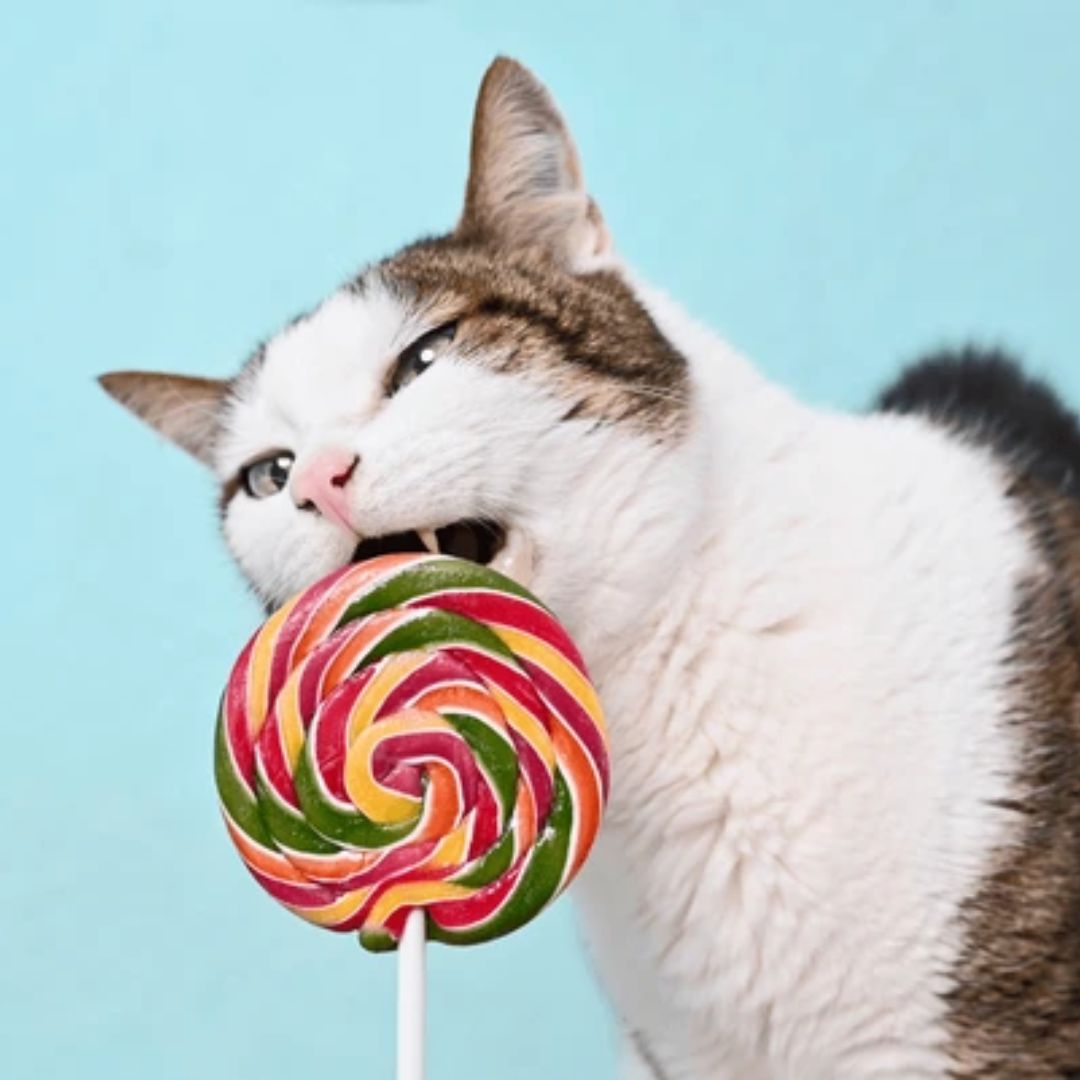
"Feline Health Matters: The Top 5 Reasons to Avoid Giving Sugar to Your Cats"
Share
Cats, with their discerning tastes and preferences, are often a source of joy and companionship in our lives. As caretakers, we strive to provide them with the best care and nutrition. However, one often overlooked aspect of feline health is the impact of sugar consumption. Here are the top five reasons why steering clear of giving sugar to your beloved feline companions is crucial for their well-being:
Digestive Distress and Weight Issues: Cats are naturally inclined toward meat-based diets, thriving on protein and fats. When sugar enters their systems, whether from treats or certain human foods, it disrupts their sensitive digestive equilibrium. Due to the lack of specific enzymes for sugar processing, cats often experience stomach disturbances, diarrhea, and sometimes severe digestive problems. Additionally, an overconsumption of sugar can lead to weight gain in cats, possibly resulting in obesity. This weight gain can trigger various health issues such as diabetes and joint problems.
Dental Health Impact: Similar to humans, sugar can pose dental problems for cats. Sugary substances promote the growth of harmful bacteria in their mouths, leading to plaque buildup, tartar, and dental diseases such as gingivitis. These conditions can cause discomfort and affect a cat's ability to eat comfortably, impacting their overall well-being.
Risk of Diabetes: Cats can be prone to diabetes mellitus, and a diet abundant in sugar can heighten this risk. Consistent exposure to sugar can disturb their insulin regulation, potentially leading to insulin resistance or diabetes. Reducing sugar intake considerably decreases the chances of developing this life-changing condition.
Behavioral Changes: Sugar can influence a cat's behavior, causing energy fluctuations and mood swings. Cats may exhibit periods of hyperactivity followed by crashes, disrupting their usual routines and interactions. Avoiding sugar helps maintain a more stable and predictable behavior pattern in felines.
Nutritional Balance: Every element of a cat's diet should contribute to their nutritional needs. However, sugar-laden treats or foods may replace more nutrient-dense options, leading to deficiencies in vital vitamins and minerals. Opting for a balanced, sugar-free diet ensures cats receive essential nutrients without unnecessary additives.
In conclusion, our cats' well-being is intricately linked to what they eat. As responsible pet owners, it's vital to be mindful of their diet. Avoiding unnecessary sugars isn't just about protecting their health; it's about preventing potential illnesses, ensuring a better quality of life for our cherished companions.
By offering a diet that suits their needs—abundant in protein and devoid of sugars—we actively contribute to the long and lively lives of our beloved feline friends. Prioritizing their health means choosing a sugar-free, healthy lifestyle for our furry companions. In return, they'll express their gratitude with joyful purrs and playful antics, reveling in a happier and healthier life by our side.
Cat Blogs: Cat Behavior | Cat Food | Cat Health & Care | Cat Training | Cat Breeds | Cat Lifestyle | Cat People
Visit our blogs page for more fun cat topics and cat products visit www.catcurio.com
Follow CatCurio: Instagram I Facebook I Twitter I YouTube I Tumblr I Pinterest
